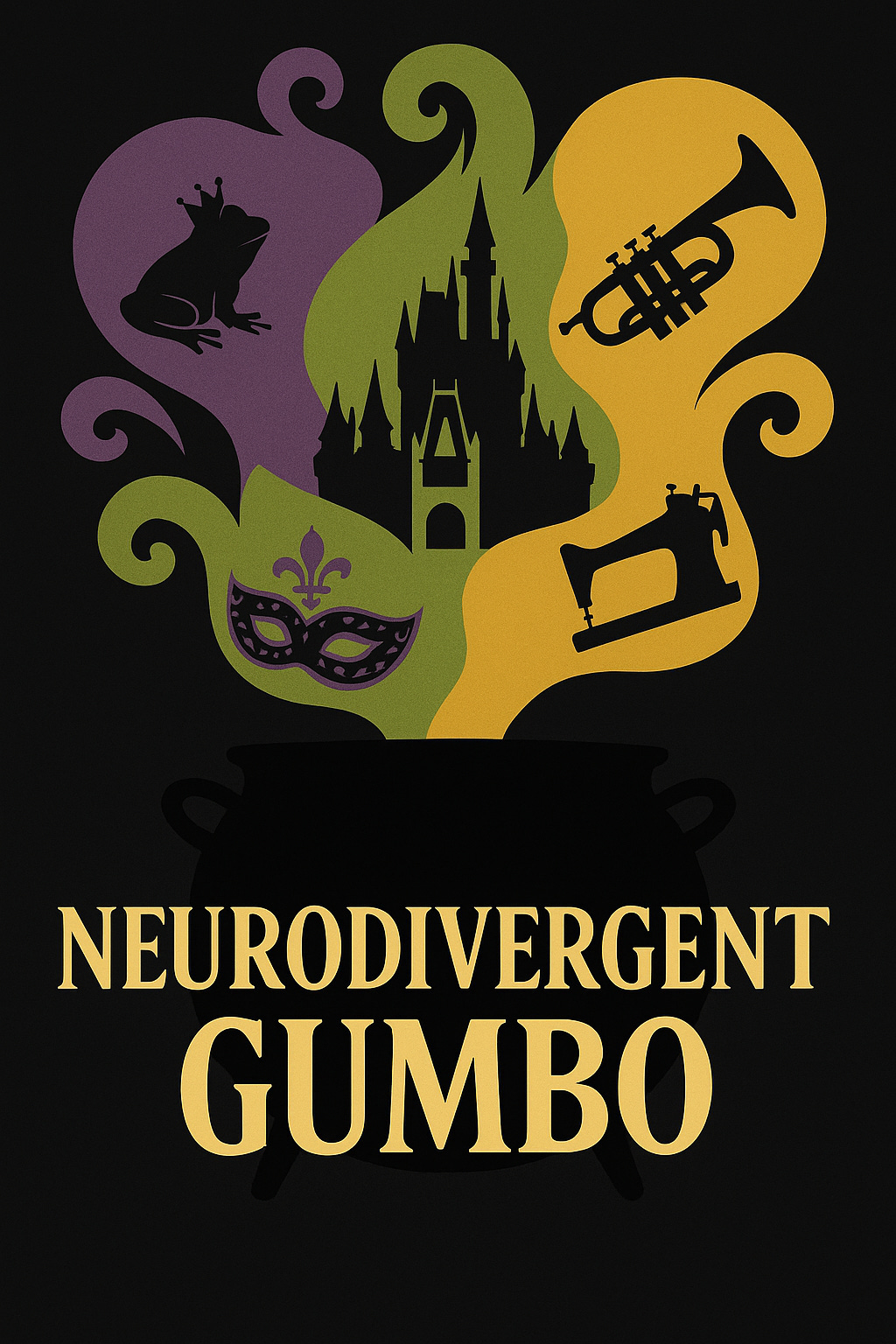Neurodivergent Gumbo - Black Girls Don’t Get to Be Silly
On Joy, Judgment, and the Tightrope of Being
If you missed the first ladle of Neurodivergent Gumbo, don’t worry—we’re still stirring the pot. This is the second installment in a multi-part series deconstructing the Disney fantasy, one character at a time. (Catch up [here] if you need to.)
In this second serving, we move deeper into The Princess and the Frog—but this isn’t about tiaras or talking frogs. This is about legacy. Labor. And the soft-sold limits placed on Black women who dare to dream.
We’re peeling back the lace curtain to look at Eudora, Tiana’s mother, and the way her love comes wrapped in survival instructions. We’re also pulling the pink satin bow off Charlotte—Disney’s darling of white femininity—and asking what it really means to be “the best friend” when proximity replaces parity.
This isn’t your childhood fairy tale.
This is the cost of showing up, staying sweet, and still getting denied the deed.
The Mother Who Read the Storybook, But Had No Time to Dream Herself
Tiana’s mother, Eudora, is the kind of character you’re meant to love without question. She’s sweet. She’s hardworking. She tells stories and sews dresses and calls her daughter “baby” like a hymn. But if you look closely, Eudora is carrying more than fabric and fairy tales—she’s carrying centuries of labor, and the unspoken expectation that her daughter will carry it next.




